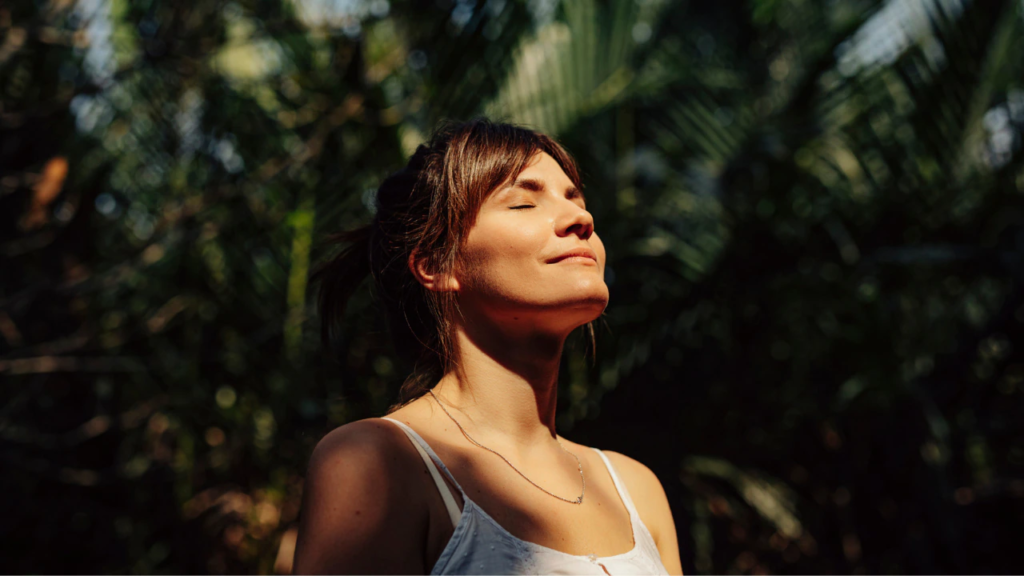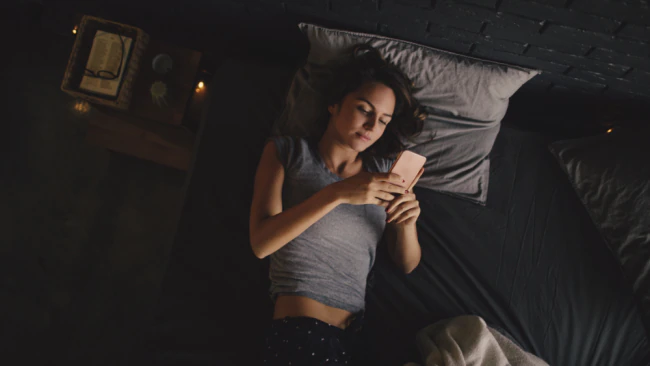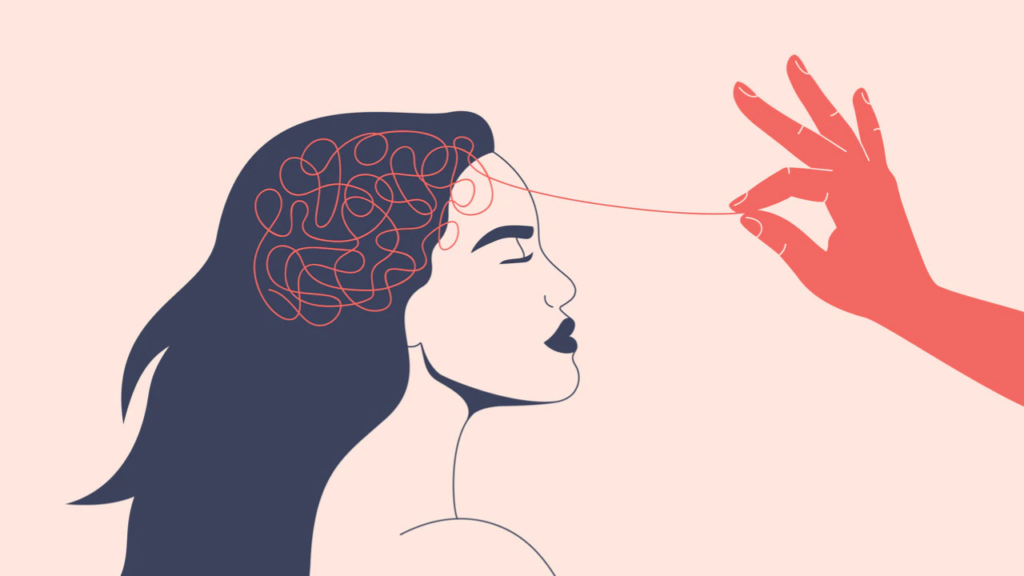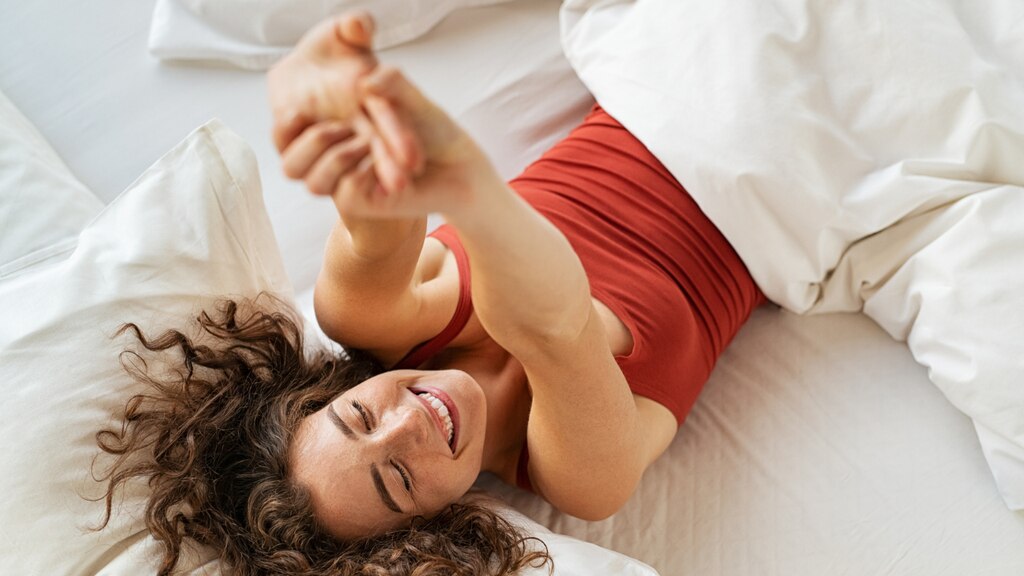Sleep expert Olivia Arezzolo shares her tips to start falling a sleep in the snap of your fingers.
Sleep: it’s free. And we all want more of it, so why is it so hard to get? Specifically – that consistent, restorative, uninterrupted, eight-hours-a-night kinda sleep. Which is why we’ve enlisted Sydney-based sleep expert Olivia Arezzolo to solve our myriad of sleep concerns with our Sleep Well Wednesdays series. Check back every fortnight and you’ll be off to the land of nod before you know it.
There’s nothing worse than tucking in late at night sure we’re on our way to peaceful slumber, only to lie there awake for hours. Sleep saboteurs destroy our sleep, impair our productivity and cause chaos for our mental health.
But… are you aware of the most common ones, and my recommended strategies as a sleep expert to overcome them? If you’re not, this article is for you.
As always, sleep well.
Sleep saboteur 1: light

Light, especially blue light, is our primary zeitgeber, the main factor controlling the circadian rhythm and therefore, melatonin levels.If there is one single reason you have sleeping problems, this is probably it.
When we are exposed to blue light, melatonin production is impaired, which leaves us feeling alert and awake even if it’s late.
Concerningly, even lights on low can be problematic. A 2019 study published in the journal PNAS showed melatonin synthesis can be impaired by 50 per cent by a dim interior light.
The best way to overcome this?
Wear blue light blocking glasses prior to bed. Try this for two hours if you are the lion chronotype, two-and-a-half hours for Bears, and three hours for wolves.
Sleep saboteur 2: devices

We’ve heard it all before, but devices are bad… really, really bad for our sleep. A 2012 study published in BMJ Open found the following:
- Using a phone in the last hour before bed increases your likelihood of taking over an hour to fall asleep, by 48 per cent, and using a computer in this timeframe increases this likelihood to 52 per cent.
- Similarly, using a phone in the last hour before bed increases the likelihood of losing two or more hours of sleep by 35 per cent, and using a computer in this timeframe increases this likelihood to 53 per cent.
Though you may think your phone’s ‘night mode’ is saving your sleep, it’s not quite true. A 2018 study by Rensselaer Polytechnic Institute in New York found that ‘night mode’ only lessened the negative effect of blue light on melatonin levels by four per cent.
However, the problems don’t stop at laptops and phones, TV also causes problems. The study mentioned above found that those who watched television before bed were the most likely, of all tech users, to report night-time wakings.
Finally, using e-readers like kindles? Unfortunately, also an issue.
A 2018 study by Brigham and Women’s Hospital in Boston found that e-readers can suppress melatonin levels by 55 per cent, contributing to difficulties falling asleep and staying asleep, alongside unrefreshing sleep
The best way to overcome this?
Using a goodnight phone alarm, as advised in my bedtime routine. When this goes off, put all devices (phone included) out of the bedroom. If you currently need it as an alarm, get a traditional alarm clock.
Sleep saboteur 3: stress

When stressed, our nervous system moves into ‘alarm’ phase, also known as fight or flight mode. When this happens, stimulating hormones adrenaline and cortisol increase, leaving you extra alert. This often results in an inability to switch off at night.
Historically, this system allowed our species to survive. If stressed by a predator like a bear, this extra alertness meant we could run away faster, or fight with greater tenacity. However, in modern times, this system doesn’t serve us so well. Chronic stressors, such as excessive work, social commitments or new COVID-19 strains often don’t resolve through the day, so we stay hyper-alert at night, resulting in sleeplessness.
Note that stress causes particular difficulties through the night, especially at three in the morning, as this is the time when stress hormone cortisol usually rises, as directed by the circadian rhythm. If your cortisol levels are too high – because you’re too stressed – when this happens, you’re likely to wake up.
The best way to overcome this?
Practicing daily stress relieving activities,(such as meditation, movement and mindfulness), having a regular therapist or coach, and taking periodic breaks – at least once a quarter – to properly disconnect from stress, and get back to your best self.

+ show Comments
- Hide Comments
add a comment